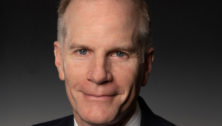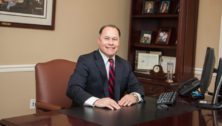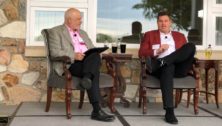Chester County Leadership: Mark Dischell, Partner, Dischell Bartle Dooley
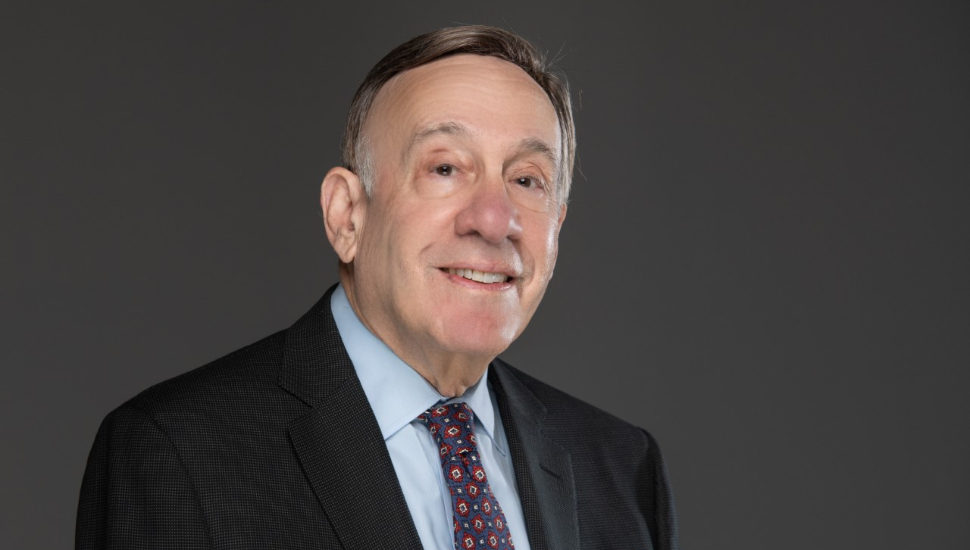
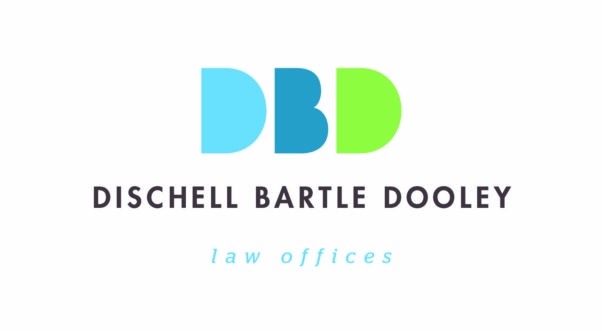
Mark Dischell, a Partner at Dischell Bartle Dooley, spoke with VISTA Today about growing up in Atlantic City, in a beach house that overlooked the ocean; going to work for his father, who owned a furniture store, for $1 an hour when he was 10 years old; and how choosing to attend Dickinson College was one of the best decisions he’s ever made.
Mark Dischell also discussed attending Villanova Law School, landing his first job clerking for the President Judge in Montgomery County following law school, what distinguishes him as a lawyer and what he wants his firm to be known for.
Where were you born, and where did you grow up, Mark?
I was born the oldest of two children in 1946 and was raised in Atlantic City, New Jersey. When I was around ten, we moved down beach, but I was an Atlantic City boy.
What memories do you have of growing up in Atlantic City?
The house we lived in was on the beach, so we overlooked the ocean. That part was great, especially during the summertime when I was little. It was exciting to live so close to Atlantic City.
I’d go up on the Boardwalk with my friends, watch the tourists, and visit the conventions. In the 1950s and 1960s, it was still exciting.
Did you or your friends work on the Boardwalk?
A lot of my friends had jobs on the Boardwalk. I worked in a bingo parlor. I was a ball boy. The game was called SKILO. I carried a bag of red rubber balls. The customer had to toss a ball into a numbered canister aiming for the needed number. It was my job to yell out the number thrown. When a customer got a “SKILO,” the proprietor would give cash if there was a winner, instead of a regular prize.
Did you have other jobs?
My father owned a furniture store, and when I was ten years old, I went to work for him in the warehouse putting together furniture, unpacking cartons, dusting, and jobs of that caliber.
What did he pay you back then?
When I started, I received a dollar an hour. The work was arduous. My father was a loving, but hard-nosed guy to work for and a very practical man. He had 1920s and 1930s New York maxims about everything. Nowadays, if I read Damon Runyon or J.T. Farrell, I’ll hear his voice in their colloquialisms.
What lessons did you take away from working with your father that remain with you today?
I learned that when I was confronted with mind-numbing tasks, I could do them. I learned discipline and determination from working in that warehouse.
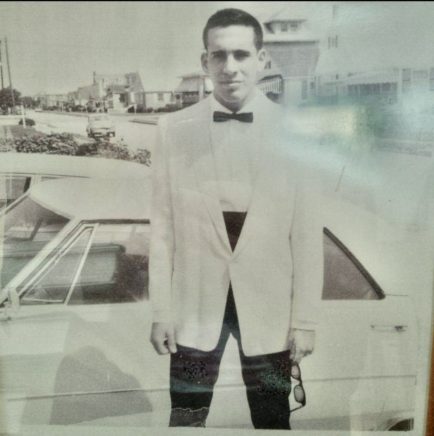
I’d listen to a lot of music then. I wish there were audiobooks when I was a kid because that’s how I would have filled a lot of that time.
I would watch my father sell furniture and work with people – his shtick – and he was good! Really good. As my life evolved, I’d see him doing various things, and I learned a lot from shadowing him.
My father always told me to look around and know where I was. He meant not only physically, but emotionally and mentally. He always did. I was amazed at his cool.
Did you play any sports, Mark?
Yes, but not very well. I played Little League for a while and had the lowest batting average in the league. I was tall and could catch, so the coach stuck me at first base. I played various sports in college for my fraternity. Again, not very well, but we had fun.
Are you still a baseball fan?
Very much so. I’m a Yankees fan and used to go with my folks to see them when I was young. Yankee Stadium and its tradition so impressed me. The old park was far less corporate than the present stadium, and I saw so many of the greats. Mantle, Berra, Ford, and Munson then and more recently Jeter, Rivera and so many others.
What kind of music were you listening to back then?
I listened to a lot of music back then and now, especially rhythm and blues, group harmony, and jazz. I tuned into faraway radio stations to hear music. In Philadelphia, I played WIBG, WDAS, and WHAT. I really got to know rhythm and blues.
My dad had a monetary interest in an Atlantic City nightclub. I made deliveries to the nightclub, so I got to meet some cool people. I spoke with Lenny Bruce and Dinah Washington.
I would take my mom to the shows, and it was great to see many of those artists in person. I still listen to that music today. I used to go to Steel Pier, and I saw so many Rhythm and Blues and Doo-Wop groups live.
Where did you go to college?
I graduated from high school in 1964 and went to Dickinson College in Carlisle, Pennsylvania, because I wanted to go to a small school. I was accepted at other places, but I have always tried to go my own way after thinking over the options. I met some impressive professors at Dickinson when I was visiting and felt very comfortable there.
I have made five or ten excellent personal decisions in my life; going to Dickinson was one of them. The college encouraged me intellectually on every level. From college and fraternity life, I learned a lot of socialization skills. Dickinson then was a conformist place. I noticed the difference from my upbringing, but I never felt out of place.
The 1960s were a remarkable time to be in college! Were you involved with the Vietnam protests at the time?
Very much so. I never blew up a building but was an activist. I never thought destruction was the way to get anything done. That was my father’s influence, telling me to do something but to be practical.
So what did you do?
I went to law school after college, not reluctantly, but not wholeheartedly. It was three years of intellectual stultification compared to college and earlier. It was hard at age 22 to sit for hours reading cases — almost like being back in the warehouse. There was no dissent or liveliness. I made friends, and we called ourselves “the Outer Banks.” All of us made it out, but I was the only one who ended up practicing law.
I lived in West Philadelphia for most of Law School and tutored reading for the Young Great Society in West Philly. I was very much involved with the ideals and ideas of that time. It’s great to have ideals, but you really have to know where you are and what you can accomplish.
I met Bobby Kennedy in 1964 at the time of the Democratic National Convention in Atlantic City. He was staying a few blocks away from my house. I saw him on the beach and approached his Secret Service men, asking to talk to the Senator. Bobby wasn’t really in the mood to speak to a kid. He was mesmerizing. He had a look in his eye — something between sensitive and zealous. And Ethel Kennedy was fabulous and gracious. I think I liked her better than him!
I was at the Convention when he spoke. I met some of the Mississippi Freedom Delegation. I had tickets for the whole convention, so I was a part of many events and speeches throughout the week.
I was in New York on a class field trip to the United Nations when President Kennedy was assassinated. I never saw anything like New York after the news broke. So quiet. There were still appliance stores, with TVs in the windows, and I’ll never forget people standing there watching the news, crying and shaking their heads.
You graduated Villanova Law. Who saw promise in you and opened doors for you?
After I got out of law school, I clerked for the President Judge in Montgomery County. He was an interesting guy, but not warm and fuzzy. He was brilliant, having gone to Harvard for undergrad and law. At my job interview with his clerk, I was tasked with writing an opinion for a decision of the Judge on a case I knew nothing about. His clerk said, “Here, write the opinion on why the judge is correct.” Initially, I think both clerk and the Judge liked me less than the other applicants, but I stayed in that law library for eight hours drafting the opinion. Not quite like working in the warehouse for Dad.
No Google, but I researched the Judge before the interview. When I was in his chambers, I saw a graduating class photo of him. In the class was two-time presidential candidate Adlai Stevenson. I pointed to Stevenson and the Judge was impressed that I knew him. He didn’t like Adlai.
The Judge was a Republican; at the time, all judges in Montgomery County were. He then went through the class photo and told me about every notable person in it, and I could tell I broke the ice and found the bridge to communicate. We had a moment there, and a few hours later, he called me to say I had the job. He even used my draft of the opinion which was affirmed by the Superior Court.
What I learned from that job was reinforced by what my father taught me – know where you are, who you are, and how to move around. Self-awareness and other people’s perspective are important.
From there, I went to work in a law firm in Lansdale. I worked hard, sixty to seventy hours a week.
What distinguished you as a lawyer, Mark?
I used the law and common sense to figure out what was going to happen. I was and am a bottom-line guy focused on the result. I know how to take a case apart and put it back together. Unless someone deserved otherwise, I was always respectful. Very tough, but professional and courteous.
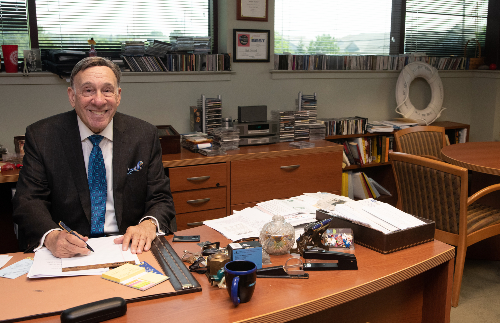
I put in the time and the work. I knew and know all the factoids, and I knew the precedents. What I did the most though, was build client confidence. I tried not to take myself too seriously. I didn’t regard myself in an anointed status. Pride goeth before a fall said my Mom and a few others.
When I would speak to clients on the phone, I’d ask them how they’re doing, what’s new, and what’s on their minds, good things, worries, bad things. You need to know them not only as their lawyer but as an individual. With others, I’d ask if they were having any fun. Very few people clam up when you ask them that.
I’ve always felt that conversation works better than confrontation. People when threatened don’t focus on how to get it done.
What made you start a law firm in Lansdale?
One of my bosses at my job in Lansdale, after the clerkship, recruited me to be his partner. It was a good offer, so we formed a partnership. I was with him for two years, and it didn’t work out. After that, I realized I didn’t want anyone else to be my boss. I opened my first office in the basement of an apartment building. It was hard, but I made it work. If you’re smart and you hustle, it works in the end.
What is it that you want Dischell Bartle & Dooley to be known for?
Result-oriented, hard work, tenacity, kindness, and loyalty. Kindness and loyalty are two of the most important words in the English language. My Dad used to say, “If you pick up more checks than are picked up for you, you’ll go to heaven.”
My Mom was more eloquent. She was an artist, an intellectual, and very fierce. She had to be. She told me that people would perceive me by the way I treated others — and I should have “nice ways.”
What do you do with your free time? What are you passionate about outside of work?
My wife and I spend a lot of time together. After 43 years it still works. She quells my demons and centers me. Marriage is great, but not easy and requires constant self-assessment.
My law partner Frank Bartle recently died. He was my partner and great friend for 43 years. It was devastating. My surviving partner, Jack Dooley, is a great friend and an inspiration, as well.
I read a lot and listen to a lot of music, still jazz and blues, and rock and roll. I am very fortunate to have good friends. I value my friendships. Six of us are history people. We see a lot of historical sites, exhibits, and events together, all of us are intellectually curious.
What was the last great book you read?
The third book in the Thomas Cromwell series by Hilary Mantel titled The Mirror and the Light. I read history, fiction, and a good bit of crime fiction. I recommend the book Hollywood by Gore Vidal. It’s about World War I and the confluence of Hollywood and politics. It’s a must for understanding how government and popular culture mix and shape us although not necessarily for the best.
Finally, Mark Dischell, what is the best piece of advice you’ve ever received?
I’ve quoted my Dad a few times and his advice still resonates with me today.
There’s one thing he used to say when exasperated by me. He would ask me a question, and I would answer and give him a “but.” He would say, “Don’t give me the ‘but.’ It’s all bull@%*& before the ‘but’. Tell me what you want to say.” So true and words to live by.
___________
Editor’s Note: Laura Manion contributed to this profile.
Connect With Your Community
Subscribe to stay informed!
"*" indicates required fields







![95000-1023_ACJ_BannerAd[1]](https://vista.today/wp-content/uploads/2023/03/95000-1023_ACJ_BannerAd1.jpg)








































